Andy Warhol
-
Warhol v. Goldsmith: a Narrow Decision Preserves Fair Use As We Know It for Filmmakers
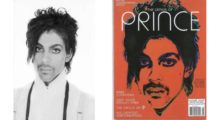
Fair use, a crucial right. Since 2005, when documentary filmmakers created their Documentary Filmmakers Statement of Best Practices in Fair Use, fair use has become settled industry practice. Fair use is what lets people quote from their culture for free, in the right circumstances. Ring tone in the scene? Paintings in the background? Want to use news clips to highlight the importance of events in the film or a stanza of a song you’re talking about? Check first to see if fair use applies; it very well might. Insurers cover fair uses, too, because they know the risk is low. Fair […]
by Patricia Aufderheide, Brandon Butler and Peter Jaszi on May 25, 2023 -
“A Haunting Symbiosis”: On Ed Lachman’s Newly Restored Lou Reed & John Cale Concert Film, Songs for Drella
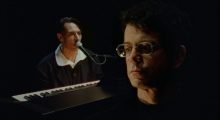
Not merely an addendum to Todd Haynes’s The Velvet Underground, Ed Lachman’s Songs For Drella is a ravishingly beautiful, sometimes thrilling audiovisual recording of a song cycle by Lou Reed and John Cale, the founders of the Velvet Underground. Cale and Reed’s early musical collaboration as the VU was inspired but unlikely – they had diametrically opposed musical roots and passions. Short lived as the band was, it became the source for punk, glam, and whatever followed from those fundamentally subversive pop genres. The VU began sliding toward death when Reed effectively fired Cale in 1968. (He had fired their first producer, Andy Warhol, […]
by Amy Taubin on Oct 22, 2021 -
The Radiant Godfather’s Trusty Sarcophagus: A Requiem for René Ricard
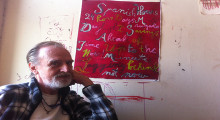
Lipstick Traces René Ricard, Massachussets-born poet, painter, art critic and Warhol superstar, died February 1 after a battle with cancer, and the Botticellian angels quarrel, seeking revery as trumpets blare in heavenly jubilee for a luminous child. Ricard was published as a teen in the Paris Review in 1967. During the ’70s and ’80s, his articles for Artforum magazine helped launch the careers of Jean-Michel Basquiat, Keith Haring, Julian Schnabel and Francesco Clemente. Upon meeting the pop artist Andy Warhol and his protégée, Edie Sedgwick, Ricard found his feral adopted family and went on to appear in the 1965 film […]
by Michele Civetta on Feb 5, 2014 -
SATURDAY VIEWING: ANDY WARHOL AND EDIE SEDGWICK ON “MERV GRIFFIN”
(Hat tip: Dangerous Minds.)
by Scott Macaulay on Aug 18, 2012 -
Six Asides on Paranormal Activity 2
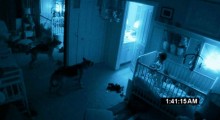
Paranormal Activity 2 is not an avant-garde film, but only because no one has argued that it is. 1. The Importance of Framing The difference between commercial culture (pop culture) and the avant-garde is a matter of rhetorical framing. Jean-Luc Godard, for instance, created the conditions for the New Wave not only through his films, but through his words about his films, and about cinema in general. Confrontational, witty, manifesto-like, Godard framed the way people saw his films. Godard was an auteur of language, not just cinema. “A movie should have a beginning, a middle, and an end,” he famously […]
by Nicholas Rombes on May 10, 2011 -
WHAT’S IN MY INSTAPAPER: SUNDAY MORNING LINKS, 4/10/11
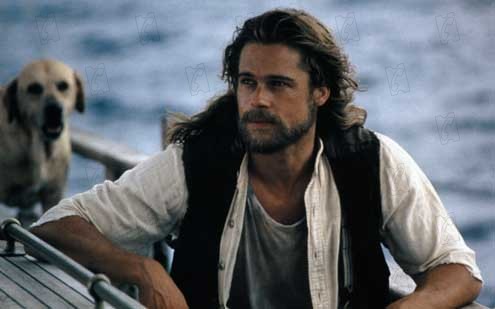
Here are a few articles of interest I’ve stored in my Instapaper. There’s a new website for Terrence Malick’s The Tree of Life, and it takes something of a transmedia approach. Chuck Tryon explains: As you enter the website, it invites you to follow one of two forking paths, the father’s way or the mother’s way, while a haunting, almost mournful score plays in the background. Once you choose, you encounter a split screen with half the screen filled by a semi-circle of video clips and the other a white space with some cryptic text that evokes a moral parable. […]
by Scott Macaulay on Apr 10, 2011 -
Esther Robinson, A Walk Into The Sea: Danny Williams And The Warhol Factory
ANDY WARHOL AND DANNY WILLIAMS IN DIRECTOR ESTHER ROBINSON’S A WALK INTO THE SEA: DANNY WILLIAMS AND THE WARHOL FACTORY. COURTESY ARTHOUSE FILMS. Esther Robinson has an effusive passion for cinema that is infectious, and has led her to dedicate her career to helping artists and filmmakers. She studied film and television at NYU’s Tisch School for the Arts, and at the age of only 24 produced Alive TV, a television show for PBS about alternative and experimental film. In 1998, she started Wavelength Releasing, a company established to explore new ways to make, distribute and show movies, which was […]
by Nick Dawson on Dec 14, 2007
